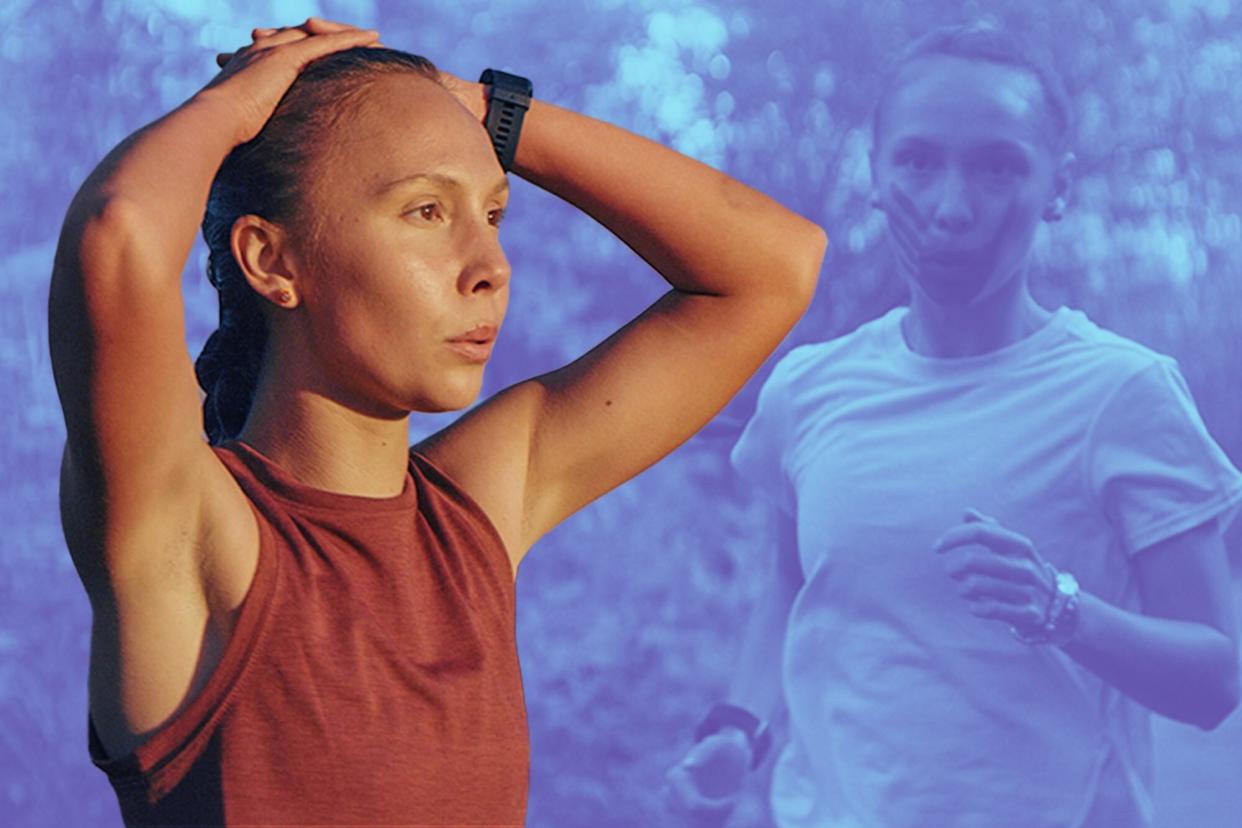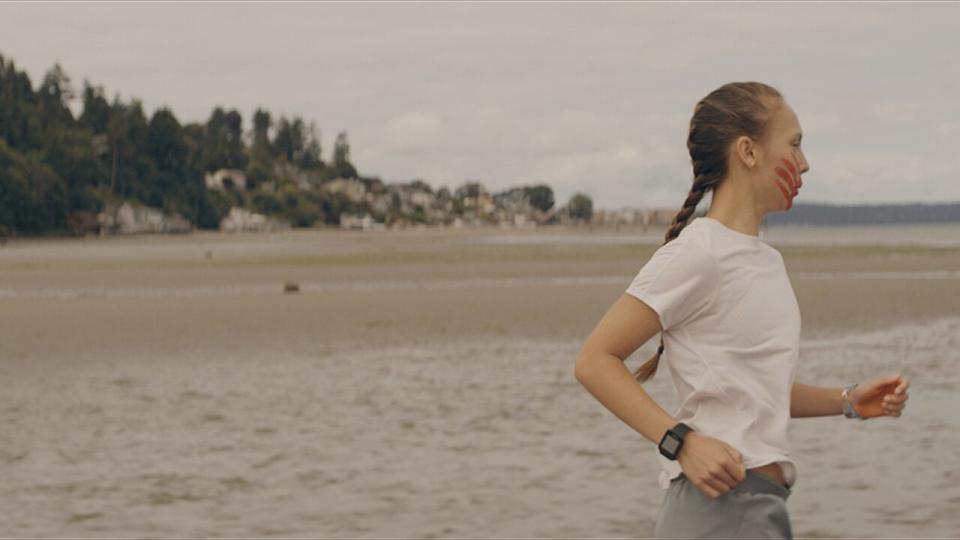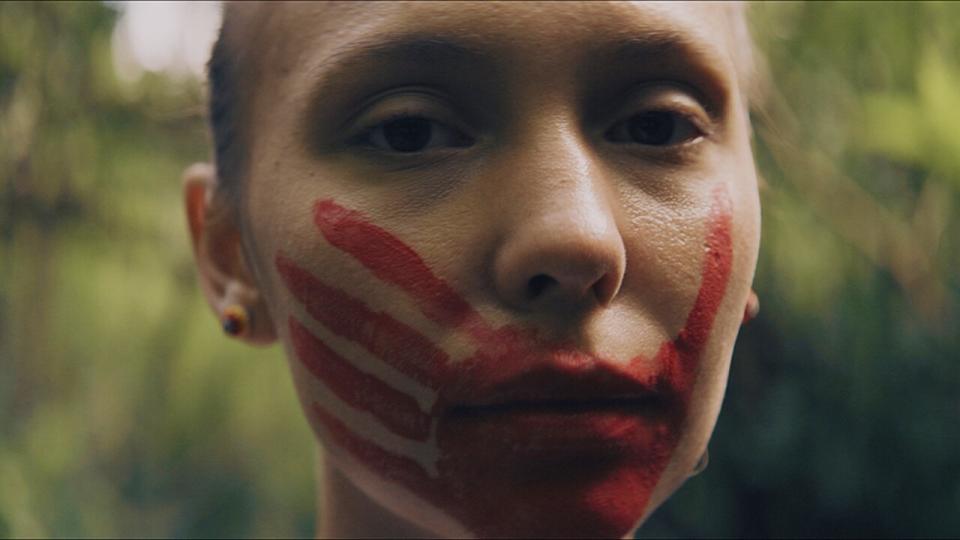This Runner Is Using Her Skills to Raise Awareness About the Missing and Murdered Indigenous Women Crisis

- Oops!Something went wrong.Please try again later.
Courtesy of Camp4 Collective and Brooks-Running
When Rosalie Fish first began jogging down her neighborhood's streets on the Muckleshoot Reservation in Auburn, Washington, it was purely a coping mechanism — a way to deal with the depression, anxiety, and insecurity she felt as a 14-year-old queer, Native girl, she explains. "Running gave me something that I really liked about myself," adds Fish. "It made me feel strong and empowered, and I didn't have a whole lot of things that made me feel like that at the time."
But being the sole person on her high school's cross-country team took a mental toll. Throughout her athletic career, Fish recalls feeling isolated and experiencing microaggressions and prejudiced assumptions about her performance simply because she was competing for a tribal school. "However, over time, I was able to kind of hold onto running through the hard parts of my life and begin to enjoy seeing my times come down in practice," she says. "I began to realize that I could use running as a tool to challenge the prejudice that other people had about me as a Native runner."
During her senior year, Fish's mission snowballed into something much bigger. In April 2019, she watched Lakota athlete Jordan Marie Brings Three White Horses Daniel compete in the Boston Marathon, during which she wore a red handprint on her face and the letters "MMIW" painted on her legs — symbols representing the Missing and Murdered Indigenous Women movement, according to Indian Country Today.
The Movement Behind the Red Hand Print
In 2016 alone, the National Crime Information Center recorded 5,712 reports of missing American Indian and Alaska Native women and girls, and yet, only 116 cases were logged in the U.S. Department of Justice's federal missing persons database that year, according to a report created by the Urban Indian Health Institute.
The statistics on violence are just as grim: More than 84 percent of American Indian and Alaska Native women have experienced violence in their lifetime, and Indigenous women face murder rates more than 10 times the national average in some counties, according to research from the National Institute of Justice.
Indigenous women face murder rates more than 10 times the national average in come counties.
—research from the National Institute of Justice
The issue hits home for Fish, whose aunt, Alice Looney, went missing in 2004 and was found dead more than a year later. And watching Daniel dedicate all 26.2 miles to a handful of the affected Native women was a "huge, clarifying moment for me," she recalls. "To see her be unapologetically representing the Missing and Murdered Indigenous Women crisis and to see how she used her running as a platform, it completely changed the way I thought about running and how I can use it to empower myself and empower others." (Related: Well For Culture Is Giving Indigenous Wellness Practices the Recognition They Deserve)

Courtesy of Camp4 Collective and Brooks Running
Amplifying the MMIW Crisis Through Sport
A month later, Fish competed in Washington State's high school track and field championship, dedicating each of her races to a specific missing or murdered Indigenous woman she knew personally, including her aunt. Like Daniel, Fish painted a red handprint on her face and the bold letters "MMIW" down her leg ahead of the meet, and she brought along a hand-crafted poster featuring a picture of each woman she was racing for and a few paragraphs detailing their story, she explains. "[Reading] their stories I think really helped the spectators connect to the issue, and that's where I saw a lot of transformation, I saw a lot of people being reached," says Fish.
Unsurprisingly, it was an "emotionally heavy" experience, she recalls. "I remember feeling [like] my heart was heavy, legs were heavy, and trying to find ways to distribute myself in a way that I felt like I could still honor each and every single person I was racing for," she says. Compounding the exhaustion were the microaggressions Fish endured, including some competitors telling her that they liked her "war paint," she recalls. But at the end of the three-day meet, Fish still came out on top, clinching the state champion title in the 800-meter, 1600-meter, and 3200-meter races, as well as second place in the 400-meter event.

Courtesy of Camp4 Collective and Brooks Running
Advocating for Change Beyond the Track
Despite the prejudiced remarks she faced and the emotional weight that came with honoring members of her community, Fish pressed onward. Throughout the rest of her high school athletic career and her two-year stint at Iowa Central Community College, Fish says she's consistently dedicated her races to Missing and Murdered Indigenous Women — red paint, poster board, and all. Currently, she's sharing her story — and putting a spotlight on the crisis — through Brooks Running's and Camp4 Collective's "Who Is a Runner?" video series, and she's planning to continue her activism this winter when she will compete as a University of Washington track and field team member for the first time. Once her racing days come to an end, Fish has her sights set on a career that enables her to change policies that directly impact the Missing and Murdered Indigenous Women emergency such as those "that take power away from tribal governments and create loopholes for perpetrators who target women and girls on the reservations," she says. (Related: How WNBA Star Gabby Williams Found Strength In Social Justice Activism)
Fish says she knows she can't do this important work alone, which is why she urges everyone to call their representatives and advocate for the re-authorization of the Violence Against Women Act, to elevate the voices of activists, and to support organizations such as the Urban Indian Health Institute. When Fish does start to feel overwhelmed with the weight of the movement, though, she says she thinks back to the champions who came before her.
"Whenever I feel like this is too much or maybe I'm not the right person to facilitate change, I always remember that...where we are now in the progress of Indigenous representation and Indigenous rights [is] because of the matriarchs in our past," says Fish. "I know my ancestors probably thought that way at some point, too, but it isn't about me. It's about the people."

